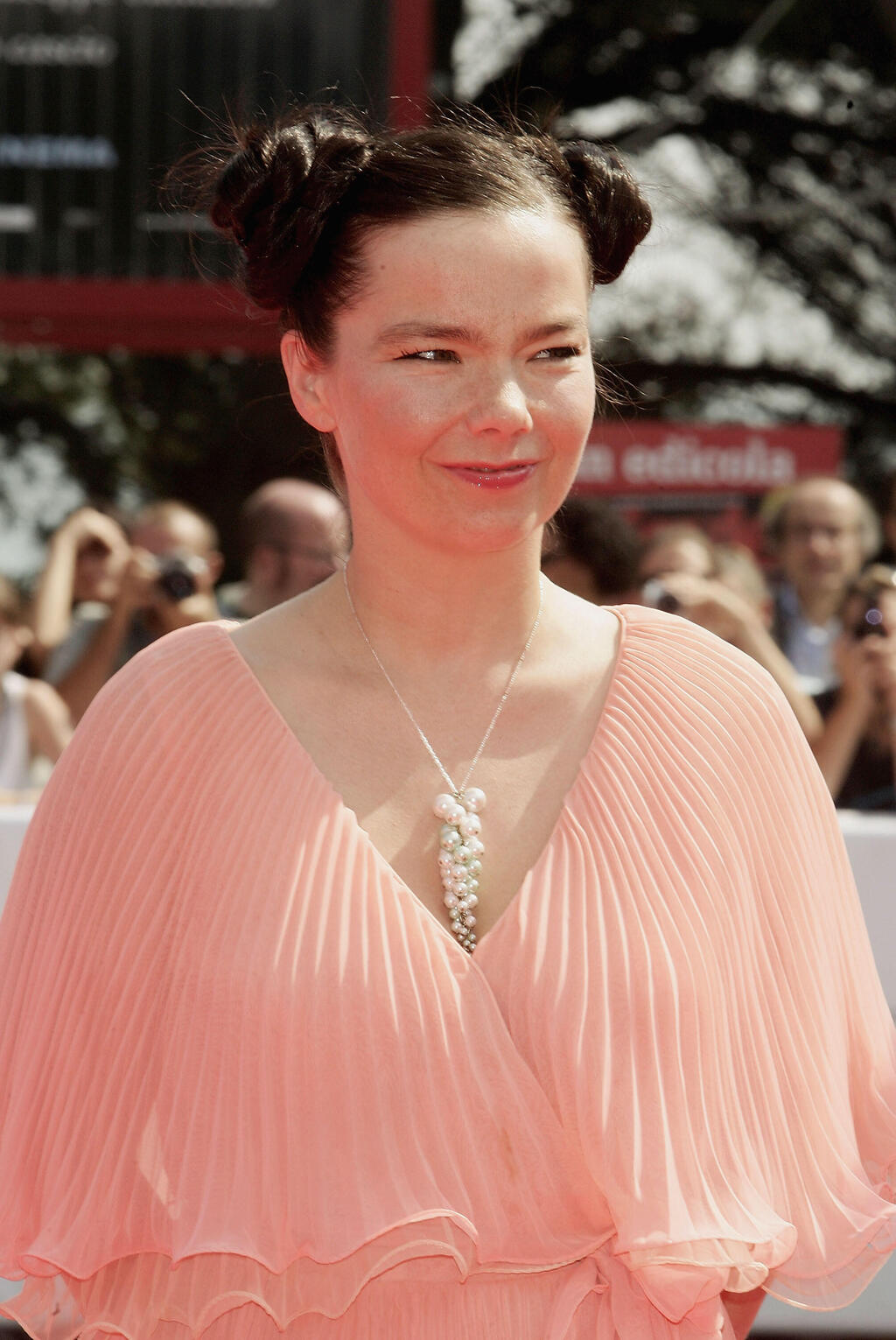On October 7th, Jewish-American singer Regina Spektor danced in her synagogue in New York along with her family. The news of the massacre only reached them later, she explains, because most of the people close to her observed Shabbat. They understood that something terrible had happened, but not much beyond that.
More stories:
“We didn't really know the scope, the real scope,” she recalls, telling of the moments when they realized what really had happened in Hamas’ surprise attack. “We were in a state of mourning and shock. All the kids were really happy, all of the adults were just trying not to cry. It all meant so much more to everybody, you know, than even usual.”
Since then, Spektor, who immigrated to the U.S. with her family from Russia when she was 9 years old, has become a publicly pro-Israeli activist fighting against antisemitism. Her posts on Instagram garner hundreds of thousands of views, in which she warns Europe and the U.S.: “Israel is the only thing standing between you and the gates of hell.”
Spektor doesn’t support the calls for a cease-fire but says she wants “to liberate Gaza from Hamas,” concluding every one of her posts with “Am Yisrael Chai.” She also confronts other anti-Israel musicians, including Bjork.
“I feel like I'm in a world-wide shiva,” she writes in one of her posts. “I walk among people, but I'm alone. Separate. Other. This is grief. I see sorrow in the faces of other Jews. In my imagination we all begin to look like those black and white photographs from family albums, books, walls of Holocaust museums, documentaries. A time machine has somehow sucked us back into an era we thought we left behind.”
In an interview with Ynet, the 43-year-old Spektor says she’s having difficulties with facing the situation. “My husband and I were talking on how we feel like this is the fastest month we ever experienced,” she says.
Spektor is a mother of two young children she had with musician Jack Dishel, part of the successful band The Moldy Peaches. Born in Moscow to two musicians, her mother, a renowned piano teacher, and her father, a violinist who died last year, always played music at home.
Throughout her long career, she has released eight studio albums, characterized by intricate rhythms, virtuoso piano playing and distinctive vocals. Songs like "Better and Us" have propelled Spektor to stardom, thanks to complex, almost mathematical rhythms, playful melodies and a lyrical style rich in creativity and self-confidence. Over the years, she has expressed strong support for Israel and has even performed in the country three times.
In addition to widespread critical success, Spektor is beloved by former U.S. President Barack Obama and even appeared before the presidential couple during their tenure in the White House. She has a star with her name on the Bronx Walk of Fame in New York, and there is even a "Regina Spektor Day" celebrated in her city.
Among other accomplishments, she created the opening song for the Netflix series Orange Is the New Black and was nominated for a Grammy. On the cover of her fourth album, "Begin to Hope," on which her most successful single "Fidelity" is located, she is photographed wearing a David of Star necklace.
The recent trauma reminded Spektor of a forgotten incident from her childhood when she experienced antisemitism for the first time, as a child in kindergarten. “I remembered this story that I had not thought about forever that happened to me when I was in preschool in Moscow,” she recounts. “I must have had an argument with a boy, or he wanted a toy that I had, and he bit me on my leg then said, ‘Go back to Israel.’”
“In Russia, everybody knew who was Jewish. I'm sure his parents talked about it all at home all the time,” she adds. “I can't blame a four- or five-year-old for being an antisemite. He's just repeating things you don't even know anything but so it was this amazing thing. The four-year-old anti-Semite knew that I didn't belong anywhere else In the world, only in Israel. Of course, he was not guilty, and he only repeated what he heard at home. Leonard Cohen once said in an interview that for him Israel is not a luxury and Elie Wiesel added that 'We cannot live anywhere else in the world without Israel,' he said, and at the same time I live in America."
When talking about the moment she realized what was happening in Israel, she says she doesn't know what preceded what and that the situation makes her sick. She also shared how she shielded her mother from the bad news. “She observes Shabbat and the holidays very, very strictly. I was counting the time to be able to tell her,” she says. “She was also in the synagogue, she knew there had been some kind of attack.”
“I said to her, ‘You know, Mama, this is the worst pogrom since the Holocaust, you have to be very careful,’ I didn’t want her to be traumatized. She said ‘It’s like the Yom Kippur War,’ and I said ‘No, it’s much worse.’ She only replied ‘That can’t be. That was really hard, trying to cushion the news but also express it so that she really understood. Ever since then, everybody I know is in a state of mourning and shock. I'm in touch with a lot of friends and family in Israel and they describe some of it to me.”
There’s been an astronomical rise in violence against Jews in the U.S. and around the world. Do you feel safe?
“I honestly don't know. I am trying really hard not to have the fight or flight, not to run away, for my mental health. You don't want to run away from your home. Our home is our mind. The thoughts that we have and the quality of the thoughts that we have inspire the quality of the feelings that we have.”
'The messages I've gotten from Israelis break my heart'
As an artist used to watching society from the sidelines, Spektor described how the American Left lost trust in Israel and turned against it. “You just watch. At first, the complete silence. You kind of don't understand. And then you watch this turn. People who would support every kind of cause in the world, you watch them do this incredible mental gymnastics and land themselves shoulder to shoulder with Hamas. in their mind, they have reconstructed reality.”
Spektor isn’t afraid to speak out against Hamas while the American left sees it as a legitimate organization of freedom fighters. “Hamas is not pretending they’re not a terrorist organization,” she says. They call for jihad. But all of a sudden, you're surrounded by all these people who are part of your community, college students, and educated people to whom ‘Israel' is this ugly word. They think it’s this oppressive regime that’s against all values of the West.”
Following that, Spektor says she had lost many of her friends. “I have friends that I'm not friends with anymore, which is very painful. They were silent when the massacre happened. And then they were silent, silent, silent and knew whatever their algorithm, decided to teach them. They went from not knowing the word Hamas to affiliating deeply with the organization. All the speaking they do is about the bombing that Israel is doing, which of course is horrific, nobody wants people bombed, but it’s crazy no one talks about what’s happening in Israel.”
Spektor says she believes the American left’s obsession toward Israel is rooted in an attempt to avoid their own issues. “This is a very good distraction for a lot of people in the United States. You will never educate them. “You should not be responsible for the education of people around these things. We can't go into the maze of hypocrisy because we'll never come out. You will lose your mind, I know because I’ve tried.”
How do you explain the fact no one takes your side?
“There are some actors and comedians speaking out.”
But not musicians, who mean much to us. Even Jewish musicians aren’t speaking out.
“I don't understand it. I know that they probably don't want to get the shit that I got. I didn't care about it, and it's not been pleasant, but I think it’s the same as making music, I do it by instinct. I felt like I really want to support the people that are suffering and that feel alone and I really want them to know that I love them and I'm with them. I'm not the only one. There are a lot of other people, they’re just not musicians, I don’t know why.”
“I want you to know that there are a lot of people, a lot of people much, much more than me,” she adds. “It's just sometimes it doesn't get heard or noticed. It's so hard to point a finger at other Jews and tell them how to do this or what to write because I think that honestly, it's much deeper than the immediate. A lot of people feel an existential threat. They're suffering in public silence, a lot reach out to people quietly saying ‘thank you for saying what I can't say.’”
Why can’t they say it?
“Because I think a lot of them have had the floor move from under them. They're falling because they feel abandoned and alone, they feel absolutely abandoned by their community, thinking they’ll be thrown away.”
Do you think you’re able to affect the opinions of other people?
“It would be narcissistic for me to think that I could say something to change their mind. I think that I can make them angry at me. Call me Zionist or racist. At best, someone would say ‘I’m disappointed in you’ but I can’t change that. I can't even change it among my friends.”
So why do you do it?
“I’m not sure, because it bubbles out, I feel like I have to say these things. The messages that I have gotten from Israelis break my heart. I have gotten messages from Uruguay. I've gotten messages from Brazil. Somebody wrote me from Argentina.”
Spektor has received several hateful comments for her support of Israel, which is why her Instagram posts are blocked for commenting. “There's no obligation and no need to open yourself up to the sewer that is the internet. People want to throw garbage, I don't have to open my eyes and my mouth to it and just take it.”
The singer also gave her opinion as to why antisemitism is currently on the rise. “I have no answers. I have so much sadness. My body connects to the ancient trauma of all the cells of every person that it took to survive every massacre for 3,000 years so that I could be here talking to you and you to me. And here we are in the crazy world that wants to deny a lot of a lot of what happened.”
'I thought if people had more footage of the Holocaust they'd know it happened'
As an artist whose creations span a broad spectrum of the human experience, Spektor addresses war as one of the most painful extremes of life. In her song "Laughing With" (2009), she sings: "No one laughs at God in a hospital, no one laughs at God in a war, no one's laughing at God when they're starving or freezing or very poor."
In the song "Ballad of a Politician" (2012), she says: "A man inside a room is shaking hands with other men. This is how it happens, our world under command." She maintains a constant gaze on war and its impact on ordinary people. In this regard, she is empathetic toward the Israeli hostages in Gaza, saying she watched videos of them many times. “My husband wants me to stop watching the videos. At some point I was going to become sick, so I had to stop.”
Spektor kept away from watching the graphic footage showing the violence, killing and destruction of Hamas’ attack. “It's such an interesting technological moment for this to be happening,” she says. “I always thought if people had more footage of the Holocaust they could know that it happened. We have everything that you could possibly have and prove something and people still don't believe it.”
Do you think we should show this footage to convince the world?
“I think the path forward is convincing people, not watching the horrors. Maybe journalists who don’t believe need to watch it, but people who hate Jews so much think everything we’ve ever done is propaganda. They think the 6 million who were killed in Holocaust are fake. There's no end to conspiracy theories.”
Despite using social media platforms to spread her messages, Spektor thinks doing so obsessively in an attempt to convince other is a waste of time. “I think social media was created without really thinking about human nature,” she explains.
“What does the algorithm want? It wants you to click and argue with a bot. It wants you to stay panicked, to feel like the world is ending, like you’re not safe and in constant danger. A tremendous amount of Jews get massacred and killed, and other Jews are in this state of mourning and horror. They’re now sick, and have depression because we carry all of this trauma in ourselves.”
What’s important for you to tell people in Israel?
“I pray every day for the hostages to return home through some miracle, and to be in the arms of their loved ones. For the world to wake up from this propaganda, and for the soldiers to be safe. To survive in good mental and physical health. This is the time to stay in good spirit. To minimize the victim mentality. To know that very sane people love you. This is the first time in the history where Jews were massacred when we had a country, an army and power.”
“There are many fronts to fight on and one of the fronts is to protect your sanity and your mental health. Stay close to the people you love. Don’t watch videos or stay stuck to news, it doesn’t help. Ask for help if you need it. This is a difficult moment in history, but we need to survive it.”







